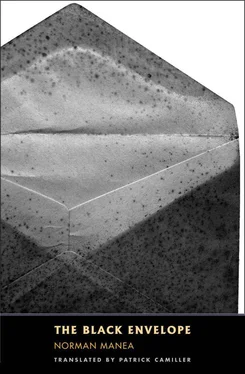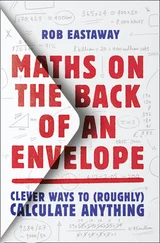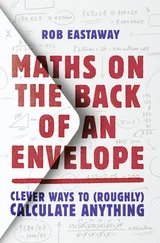The professor remained in the weak candlelight, while Herr Matei received in darkness, and in silence, the words streaming from the tenant Anatol Dominic Vancea Voinov, called Tolea.
After a pause for breath, Herr Matei finally replied.
“As a matter of fact, I came here to suggest — why hide it? If you need some — to be blunt, if you need some money. I’m not a man of wealth, you know. Still, I came to offer you — I would be able — I’m prepared to—”
“As a loan, eh?”
“Well, of course. Otherwise. .”
“Goo-ood. Perfect! As a loan, I accept. Look, Panie Matei, I accept. I agree about the loan. Any time, any way, any amount. I was afraid that when you left I might find an envelope stuffed with crisp new notes. You’re still sitting in the dark there. You could easily slip me your delicate gift without being seen. I don’t like philanthropists, you know. I’m glad you don’t belong to that dubious category. You’re even a little stingy, Mr. Gafton, sir. I hope you don’t mind that I was watching. I confess an unshakable respect for this imposing sign of seriousness. Meanness is a serious matter: it deserves every honor! Only simpletons think it’s a defect. It makes me all the more moved by your offer, you realize.”
The professor was speaking very fast, his eyes turned away from the other man and almost glued to the black window. The sentences seemed to ricochet from the glass in which the darkness of night was reflected. He half felt that his guest had stood up and was right beside the window, that Gafton-the-beanstalk was already on his left, bent over an invisible shadow. He felt, or maybe he didn’t — and anyway, he didn’t care — that the blockhead had already turned around, slowly, that his smooth pate was like a bright sphere beneath a thin aura of rush light. Yes, he had moved the clasp and lightbulb to a shelf so that its holy light fell on the bald head, and now he was looking astonished at the beanstalk, as if he had only just discovered his presence.
“Have I annoyed you in some way, sir? Is it my shameless good humor? It’s just harmless playacting, really. You should ignore it. Don’t worry, I’m not such a bore as to pester you with my melodramatics. As for the loan, make it some other day. When the time comes. When we start our walks down memory lane.”
Then he fell silent. Probably he was gathering strength for the last bombshell. And his voice became grave, calm, low, without any sharpness.
“You know, sir, I don’t care about anything. I really don’t care about anything. Do you remember my father? He thought he’d escape. Philosopher! Sorbonne! Magna cum laude ! Pah! and he built up a stock of wine — to escape. He thought he’d escape: wine is an ever necessary fuel. Including in days of wrath — especially then. Just look at how everyone jostles in lines to get some of that stinking sawdust-and-garbage wine. The receptionist at the Hotel Vancea doesn’t care whether he escapes or not! I don’t care about anything, remember. But that one did. Philosopher, Sorbonne! When he realized what awaited him in the paradise he’d gone back to, he went into hiding. Relations, money, wine stocks — we’ll shake all that off. That’s what the philosopher thought. He didn’t escape, as you know; he didn’t escape. And as for me, I don’t care even if I do escape somehow. I really don’t, you know. My indifference is harder than diamond! It is a diamond indifference, sir, harder than the heart of His Majesty the Chief Scriptwriter, hidden everywhere, never to be found. Everywhere and nowhere, a fine old trick.”
He had suddenly opened the window. The darkness rushed in— swift, perfumed, cunning. A sudden lashing. The professor tottered, raised himself up, and took his guest by the shoulders.
With an air of boredom he had gently pushed him toward the door, into the night. And that had been only yesterday.
“You’re back?” the library blonde murmured in astonishment.
Pensioner Matei Gafton gave a smile of complicity. He was a regular customer, as they say. But although he spent much of his time at the library, he hesitated to give any explanation. “Yes, I’ve given up the idea of going home. I’d only disturb my wife, who’ll be giving private lessons there until this evening. And my friend and neighbor was out looking for the Great Scriptwriter.” The reader smiled at his own joke, happy to be back with the joys of reading.
“I had a bit of a rest in a park. It’s an aggressive spring, I’d say,” added the distinguished reader, timidly and conspiratorially, as he went toward his usual place at the back, beside the window.
Soon, therefore, columns of books and old newspapers were rising high on Mr. Matei Gafton’s desk.
The Activity of the Ministry of Internal Affairs under the Regime of Marshal Ion Antonescu , published by the Dacia-Traian National Society of Book Publishing and Graphic Arts, 1943; the Decree of October 1940 on the Reorganization of Romanian Sport; the Decree of October 1942 on Propaganda, Danger, and the Existence and Interests of the State, 1940, 1942, 1943; Romanianization commissioners, penalties for high treason, death for deportees who surreptitiously return to Romania. Yes, it was all there. The decree prohibiting marriage with foreigners or Jews; the Graziani Trial; the introduction of harsher penalties for high treason and espionage, to which he had settled down; the Appeal of 65 Romanian intellectuals to Ion Antonescu in April 1944 for the withdrawal of Romania from the war . And then, of course, there were the papers and, oh yes, the books. The librarian already knew the menu.
But the studious pensioner did not feel like doing any more research that afternoon. Spring was sabotaging his reading and study. The room was deserted — just a few elderly maniacs. He might be considered one himself, with all those index cards and quotations for a work that no one had asked for, expected, or wanted. His head ached. No, he could not do any work today. Let spring take the blame: the restlessness, the migraine. . a delayed encounter not suitable for captives who have long been broken in. That bewildering upheaval — a mirage in which you could not have any confidence.
Without meaning to, Mr. Gafton put his hand on his forehead to wipe away the perspiration. A whirlwind, yes, an invisible fire in the sky. . He bent over the open notebook, his mind made up to start writing. “Ethics and justice must be the principles of both the legislation and the life of a new society. Public servants, right from the bottom to the top, should be the first to respect them. Just one example: the package received through the mail a short time ago from a former colleague. Well, I checked the contents against the Argentinian invoice note and some of the items on the list had disappeared.” Yes, he recognized the words with a certain disgust. He tore up the sheet and threw it into the wastepaper basket. Here is another full page, the draft of another letter. “As you see, I don’t practice anonymity. I take responsibility for my little demands and suggestions. They may be little, but they are important. What depends on us must be corrected, improved. At least what depends on us. I have already informed you of the wretched quality of the elevators bearing the sign elevator. Well, the day before yesterday. .”
He was sick and tired of it, he had to admit. And yet he could not give up these beautifully handwritten messages by which he told the world of his existence, perseverance, and failure.
He looked into the distance, no place, before again bending bitterly over the words. “At the pound, dear comrades, they do something that not only animal lovers consider impermissible. By law a period of three days is allowed for owners to claim missing animals. The only way of knowing whether an animal is in captivity is to visit that institution. But entry is prohibited, and in vain do people stand at the gate waiting to pay the fee to recover their missing creature. Comrades, this defiant trampling on the basic right to. .”
Читать дальше












